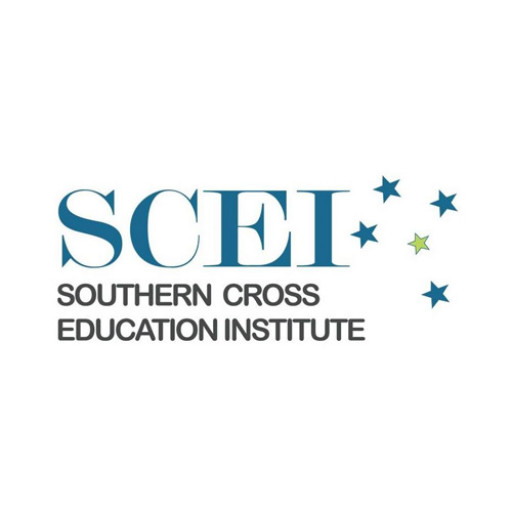Photos of university / #oxford_uni
Oxford has made a major contribution to modern molecular medicine and our senior scientists have provided significant insights to our understanding of cancer, diabetes, and cardiac, haematological and infectious diseases. There is now an opportunity to harness these advances and translate them into therapeutic benefits for patients.
The Department of Oncology and the Department for Continuing Education’s CPD Centre offer a part-time MSc in Experimental Therapeutics that brings together some of Oxford's leading clinicians and scientists to deliver an advanced modular programme designed for those in full-time employment, both in the UK and overseas.
The Programme draws on the world-class research and teaching in experimental therapeutics at Oxford University and offers a unique opportunity to gain an understanding of the principles that underpin clinical research and to translate this into good clinical and research practice.
The MSc is a part-time course consisting of six modules and a research project and dissertation. The programme is normally completed in two to three years, but up to a maximum of four years may be taken. You will be a full member of the University of Oxford and matriculated as a member of a college.
To complete the MSc, you need to attend the six modules and complete an assessed written assignment for each module, and complete a dissertation on a topic chosen in consultation with a supervisor and the Course Director. The six modules are:
- The Structure of Clinical Trials and Experimental Therapeutics
- Drug Development, Pharmacokinetics and Imaging
- Pharmacodynamics, Biomarkers and Personalised Therapy
- Adverse Drug Reactions, Drug Interactions, and Pharmacovigilance
- How to do Research on Therapeutic Interventions: Protocol Preparation
- Biological Therapeutics
The class-based taught modules consist of five days of intensive face-to-face lectures and tutorials, and are followed by a period for assignment work. Attendance at modules is a requirement for study. Some non-classroom activities are provided at laboratory facilities elsewhere in the University. A virtual learning environment (VLE) provides between-module support, and assignments are submitted online.
The modules include group work, discussions, guest lectures, and interaction and feedback with tutors and lecturers, as well as practical work that develops your knowledge and understanding of the subject.
The dissertation is founded on a research project that builds on material studied in the taught modules. The dissertation should not exceed 15,000 words. The project is normally supervised by an academic supervisor from the University of Oxford, and an employer-based mentor.
Applicants are normally expected to be predicted or have achieved a first-class or strong upper second-class undergraduate degree with honours (or equivalent international qualifications), as a minimum, in a biological science or medical science subject, including pharmacy and nursing, or an equivalent level of demonstrable understanding and competence as a result of training.
For applicants with a degree from the USA, the minimum GPA normally sought is 3.6 out of 4.0.
If you hold non-UK qualifications and wish to check how your qualifications match these requirements, you can contact the National Recognition Information Centre for the United Kingdom (UK NARIC).
Professional experience may be accepted as a substitute for a relevant undergraduate degree where an equivalent level of understanding and competence can be demonstrated.
Applicants should have some practical experience in research and/or development, usually via employment in a medical science-based company, research establishment or facility.
No Graduate Record Examination (GRE) or GMAT scores are sought.
- Official transcript(s)
- CV/résumé
- Statement of purpose: Around one page
- References/letters of recommendation:Three overall, generally academic
ENGLISH LANGUAGE REQUIREMENTS
Higher level
|
Test |
Standard level scores |
Higher level scores |
||
|
IELTS Academic |
7.0 | Minimum 6.5 per component | 7.5 | Minimum 7.0 per component |
|
TOEFL iBT |
100 |
Minimum component scores:
|
110 |
Minimum component scores:
|
| Cambridge Certificate of Proficiency in English (CPE) | 185 |
Minimum 176 per component |
191 |
Minimum 185 per component |
| Cambridge Certificate of Advanced English (CAE) | 185 |
Minimum 176 per component |
191 |
Minimum 185 per component |
The University of Oxford offers a range of financing options for students pursuing the MSc in Experimental Therapeutics. Funding opportunities include university scholarships, research council awards, or departmental sponsorships, aimed at supporting both UK and international students. The university’s commitment to fostering accessible education is reflected in numerous scholarship programs, some of which are merit-based, while others are need-based. Prospective students are encouraged to explore the Oxford Scholarships and Financial Support webpage, where detailed information about eligibility criteria, application procedures, and deadlines is provided.
Furthermore, the university participates in numerous external funding schemes, such as government-funded research grants and private sector sponsorships, which students may apply for depending on their nationality and circumstances. For international students, specific scholarships, like the Clarendon Fund or Clarendon Scholarships, offer substantial financial support covering tuition fees and living expenses, subject to competitive selection.
Students are also advised to consider external sources of funding, including national research councils, charitable foundations, and private organizations that offer grants for postgraduate study in biomedical sciences. Some students might seek part-time employment opportunities within the university, such as research assistant roles or administrative positions, to help cover living costs.
The university provides thorough guidance and support services to assist students in identifying suitable funding options and navigating the application processes. It is recommended that applicants start researching financing options early in their application process to ensure timely preparation. Overall, the university’s extensive funding landscape demonstrates its commitment to making postgraduate education in Experimental Therapeutics accessible to talented students from diverse backgrounds.
The MSc in Experimental Therapeutics at the University of Oxford offers an in-depth exploration into the development and application of innovative treatments for various diseases, focusing primarily on cancer, infectious diseases, and other complex health conditions. This programme combines rigorous scientific training with practical research experience, preparing students for careers in academia, industry, or clinical research. The curriculum covers essential topics such as drug discovery and development, clinical trial design, pharmacology, molecular biology, and personalized medicine, ensuring graduates are well-equipped with both theoretical knowledge and hands-on skills.
Students have the opportunity to engage in cutting-edge research projects within Oxford’s renowned laboratories, working alongside leading experts in the field of therapeutic development. The course emphasizes a multidisciplinary approach, integrating insights from biology, chemistry, medicine, and regulatory sciences to foster a comprehensive understanding of how novel therapies are developed and brought to clinical practice. The programme typically includes lectures, seminars, workshops, and practical sessions, complemented by independent research culminating in a dissertation.
Furthermore, students benefit from Oxford’s extensive network of partners in industry, academia, and healthcare sectors, gaining valuable insights into the translational aspects of experimental therapeutics. The university's strong emphasis on innovation and collaboration ensures that graduates are prepared to contribute to advancements in medical science and patient care. The MSc aims to produce graduates capable of critical analysis, effective project management, and clear scientific communication, making them competitive candidates for roles such as research scientists, clinical trial coordinators, regulatory affairs specialists, or further academic pursuits like a PhD.
The programme typically attracts applicants from diverse backgrounds, including biomedical sciences, pharmacy, medicine, and related disciplines, fostering a dynamic and collaborative learning environment. Admission requirements generally include a relevant undergraduate degree and demonstrable interest or experience in biomedical research. Successful completion of the MSc in Experimental Therapeutics not only enhances students’ scientific expertise but also provides a foundational pathway into the rapidly evolving landscape of therapeutic innovation and personalized medicine.
Overall, this programme at the University of Oxford offers a comprehensive, multidisciplinary training that bridges laboratory research and clinical application, positioning graduates at the forefront of therapeutic discovery and development.







